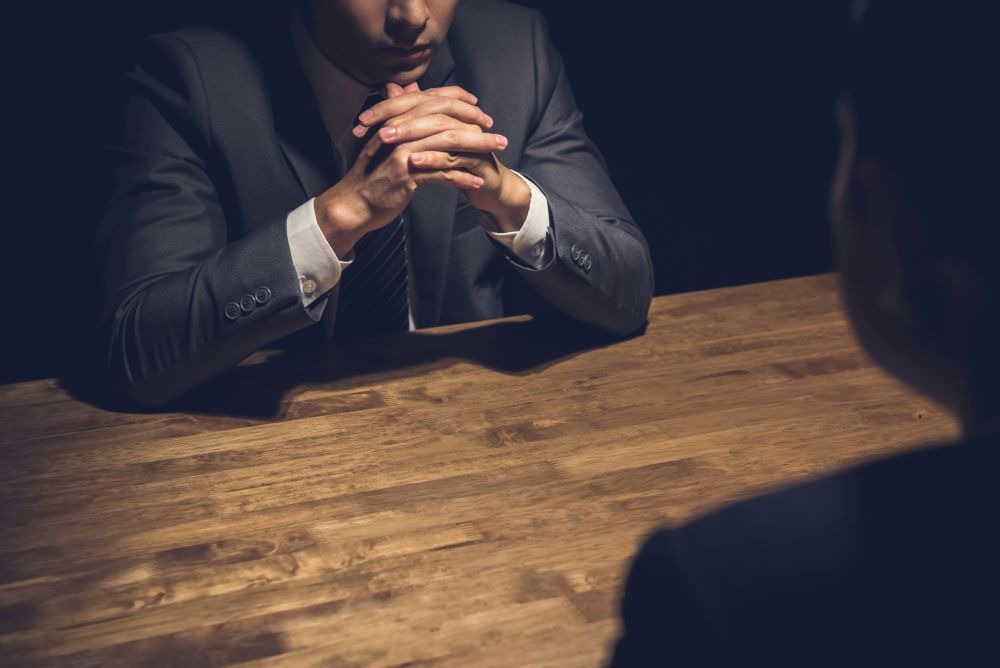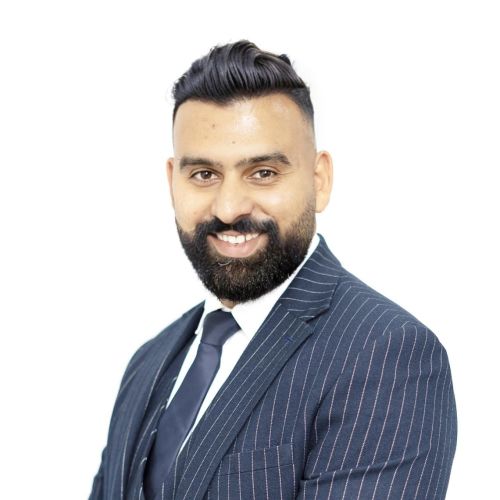If you've been invited to attend a voluntary police interview, you may be wondering just how serious it is and whether you should go. While the term "voluntary" suggests some flexibility, the reality is that these interviews can carry significant consequences.
Whether you are a potential witness or suspected of a crime, there can be legal ramifications of your decision. The experts at Tyler Hoffman have a wealth of experience in representing clients during these proceedings. This post aims to provide a comprehensive understanding of what a voluntary police interview involves, the implications of attending, and how to prepare effectively.

What Is a Voluntary Police Interview?
A voluntary police interview is a formal process where an individual is invited to provide information to the police without being placed under arrest. These interviews are part of criminal investigations when police receive complaints or allegations and believe an individual may be involved in a crime. It is often referred to as an interview under caution, which means that you are informed that anything you say could be used as evidence in court.
Unlike being in custody at a police station, a voluntary interview allows you to come in voluntarily, and you are technically free to leave at any time unless the police decide to arrest you. However, the caution given at the start of the interview signals the formal nature of the proceedings and underscores the seriousness of the situation.
Why Do the Police Use Voluntary Interviews?
Voluntary police interviews are typically used when the police need to gather information but do not have enough evidence to justify an arrest. They are common in cases involving minor offences, historical allegations, or when the police believe that the person involved may be willing to cooperate.
By using voluntary interviews, the police can manage their resources more efficiently, and avoid the need to place someone in custody at a police station unless absolutely necessary. This approach is often seen as a way to build a cooperative relationship with the person being interviewed, but it is still part of a structured investigation.
Is a Voluntary Police Interview Serious?
A voluntary police interview is a serious matter. Although you are not under arrest and may be free to leave, the fact that the interview is conducted under caution means that it carries legal weight.
A common misconception is that a voluntary police interview is just an informal chat. Even if the police create a relaxed atmosphere, the questions they ask are part of an official investigation. The information you provide during the interview can directly impact the direction of the police investigation and may be used as evidence if the case progresses to court. The caution reminds you that your statements could be used against you, and shows that it is important to approach a voluntary police interview with care.
Should You Attend a Voluntary Police Interview?
While you are not legally required to attend a voluntary police interview, refusing to do so can have consequences. If you decline the invitation, the police may decide to arrest you if they believe it is necessary to advance their investigation. Being taken into custody can be a stressful experience, involving being held at a police station and facing more formal questioning as a suspect.
On the other hand, attending a voluntary interview may demonstrate a willingness to cooperate, which could reflect positively on you in the eyes of the police. In many cases, it is better to attend on your own terms with a solicitor present than to risk the possibility of arrest.
You should seek legal advice as soon as you are invited to attend a voluntary interview. You need urgent advice from experienced professionals, as the unique nature of each situation affects the likely outcomes of each course of action. Legal representation can significantly impact the outcome of police proceedings, as a solicitor can guide you through the process, help you understand your rights, and provide support during the interview itself.
How to Prepare for a Voluntary Police Interview
Preparation is important when it comes to attending a voluntary police interview. Your solicitor will work with you to prepare answers to the questions you are likely to face. This will help you to comply with the investigation while minimising the risk of self-incrimination. Other steps you should take to get ready for a police interview include:
Understand the caution
During the interview, you will be cautioned that anything you say may be used as evidence. This caution is the same as the one given during interviews following an arrest, highlighting the formal nature of the process. Make sure you fully understand the caution before proceeding with any answers.
Know your rights
Even though you are not under arrest, you have rights that must be upheld during a voluntary police interview. You can ask for breaks, consult with your solicitor at any time, and choose not to answer certain questions. Understanding these rights can help you navigate the interview more confidently.
Stay calm and focused
It is natural to feel nervous, but staying calm can help you respond more clearly. Take your time with answers and do not feel pressured to rush. Practise breathing techniques or other ways of staying calm beforehand if you are concerned about nerves.
Bring relevant documents
If there are documents that could support your position or clarify facts, bring them to your solicitor to discuss. If they are appropriate to share, you may need to bring them with you to your interview.
What to Expect During Voluntary Police Interviews
Voluntary police interviews usually take place at a police station, though they can occur at another location by agreement. Here is what typically happens:
Arrival at the police station
When you arrive, the police will remind you that you are attending voluntarily and that you are not under arrest. They will then explain your rights and administer the formal caution. The interview will be recorded to ensure an accurate record of what is said.
The formal caution
The police will inform you that you do not have to say anything, but it may harm your defence if you fail to mention something that you later rely on in court. This caution makes it clear that your statements can be used as evidence in any subsequent legal proceedings.
Questioning
Police officers will ask questions to clarify your involvement or knowledge of the matter under investigation. The questions can range from general inquiries to more detailed questions about specific events or allegations. It is important to answer carefully, and you should consult your solicitor before responding to any challenging questions.
Your solicitor will ensure that the police respect your rights during this process, help you to understand the questions being asked, and intervene if the police apply undue pressure. They can also advise you on when it might be appropriate to remain silent or clarify points that could be misunderstood. Without a solicitor, you may inadvertently make statements that could be used against you later in court.
How Long Does a Voluntary Police Interview Take?
The duration of a police interview varies depending on the complexity of the investigation. Some interviews may last about an hour, while others, especially those involving more serious or complex matters, may extend for several hours. During longer interviews, the police must allow breaks, including time for meals and consultations with your solicitor.
It is important to be prepared for the possibility of a lengthy interview and to remain calm throughout. Knowing that you have the right to take breaks can help you manage the situation more effectively. Tyler Hoffman’s solicitors have a lot of experience in these proceedings and can help to make the questioning as comfortable for you as possible.
Can You Be Charged During a Voluntary Interview?
While you cannot be charged directly during the police interview, the police may gather information that could lead to charges later. The interview’s primary purpose is to clarify your involvement in the suspected offence and assess whether there is enough evidence to move forward with prosecution.
If the police believe they have sufficient grounds, they may arrest you following the interview or contact you later to inform you that you are being charged. This means you should approach a voluntary police interview with caution and to have a solicitor present to protect your interests.
What Happens After a Voluntary Police Interview?
After the interview, the police will review the information gathered to decide on their next steps. This could include conducting further investigations, inviting you for another interview, or deciding that no further action is required.
If the police believe the evidence is strong enough, they may proceed with charges. It is important to remain in contact with your solicitor during this period, as they can keep you informed about any developments and advise you on how to respond if the police reach out again. Your solicitor can also assist you in preparing for any potential legal proceedings, including court appearances if charges are brought.
How Tyler Hoffman Solicitors Can Help
Navigating a voluntary police interview can be daunting, but you do not have to face it alone. Our team at Tyler Hoffman Solicitors is experienced in representing clients through the voluntary interview process, providing expert legal advice to ensure your rights are protected.
We can accompany you to the police station, help you prepare for the interview, and guide you on how best to respond to police questions. Our goal is to ensure that you have the best possible outcome, whether that means avoiding charges altogether or effectively managing the legal process if charges are brought.
If you or a loved one has been invited to a voluntary police interview, don’t hesitate to reach out. Contact our Criminal Defence Solicitors today for a consultation and let us support you through this challenging time with expert advice and representation. Call our team on 03300 536 786 or use our online enquiry form to request a call back.
